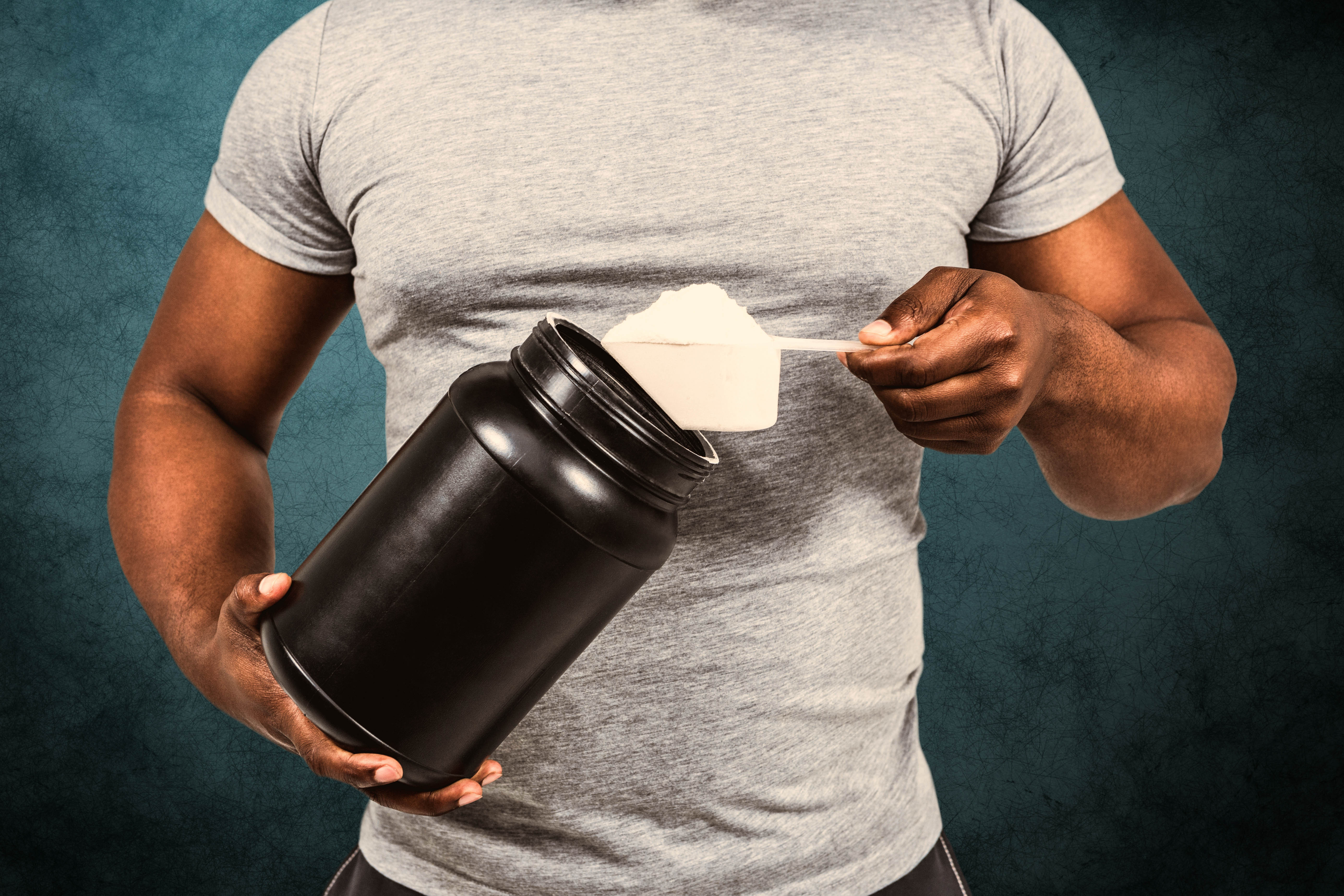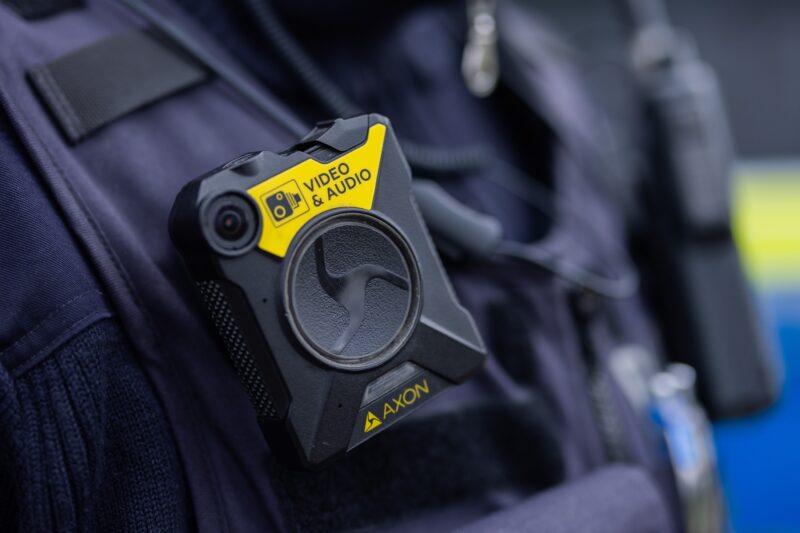- Protein is an essential part of the diet, and especially important for building muscle. How much you need depends on your activity level, diet overall, and more.
- There’s a huge variety of protein powders you can buy, from simple whey-based supplements to flavored plant-based varieties with added nutrients.
- While different powders suit different people’s wants and needs, one general rule of thumb is to steer clear of too much sugar, and to also be wary of artificial sweeteners.
- Don’t get all of your nutritional needs from shakes and supplements, which aren’t well regulated. It’s best to use them to add protein to an otherwise healthy diet of plenty of whole foods.
- Visit INSIDER’s homepage for more.
Shopping for protein powders can be exhausting even for a seasoned fitness enthusiast. The choices are endless: Whey or plant protein? Added nutrients or protein-only? Chocolate peanut butter or key lime pie?
But first, ask yourself: Do you even need a protein powder at all?
Most people, especially Americans, get plenty of protein from their diets without a supplement. It only takes 0.7 to 0.8 grams per pound of body weight for sedentary people to meet their daily recommended intakes. That’s 87 to 100 grams of daily protein for a 125-pound person; a roasted chicken breast already gets you more than halfway there.
For athletes and very active people, though, a good protein powder taken correctly can help speed metabolism and build muscle, personal trainer Noam Tamir told Insider. When choosing one, there are some overarching principles to keep in mind.
First, make sure it doesn't have too much sugar. Some brands have more than 20 grams per serving, which is about what's in a typical scoop of ice cream. And the sugar it does have should ideally be natural, or substitutes like monk fruit or stevia, rather than artificial, which research suggests can pose problems in the long term.
Second, keep an eye on the serving size. Tamir said most people can't digest more than 30 grams of protein in a single serving, so avoid overloading a single shake. Instead, add shakes to a diet that already has plenty of whole food proteins. For athletes, Tamir said it's important to get protein throughout the day at regular intervals, combined with healthy carbs and fats.
Finally, he said, don't fall for the myth that your post-workout shake has to be pure protein - some carbs and other nutrients can help you recover faster.
Here are some popular, widely available protein powders and how they stack up in nutritional content.
Read more: 3 myths about protein that you need to stop believing
Optimum Nutrition Gold Standard 100% whey protein powder
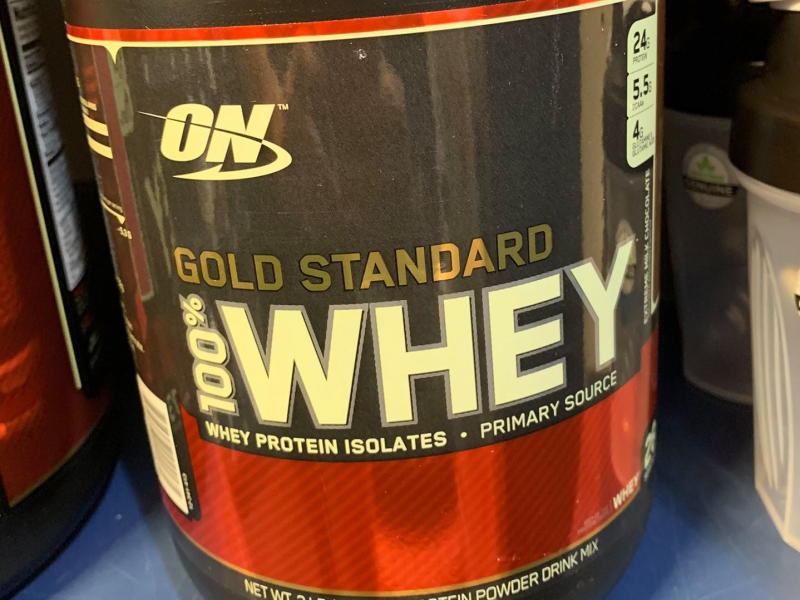
Serving size: 1 scoop to 1 rounded scoop (30-32 grams)
Calories: 120
Sugar: 1 to 2 grams
Other sweeteners: sucralose; some flavors have acesulfame
Protein: 24 grams
Cost: about $18/pound
The Gold Standard is a top-rated product on Amazon and elsewhere and comes in a huge variety of flavors like banana creme, chocolate peanut butter, and key lime pie.
It also has other nutrients like branch-chain amino acids, or BCAAs, which can improve recovery and support muscle-building.
The brand does have artificial sweeteners. Sucralose is a calorie-free substance chemically extracted from sugar and 400 to 700 times sweeter than sugar. Research is mixed on whether it has side effects in humans - it may spike blood sugar and insulin levels or cause digestive problems in some cases, but it's regarded as safe for most people.
Acesulfame, the other sweetener in this and some other protein powders, is 200 times sweeter than sugar and isn't broken down in the body, so just passes out through the urine. The FDA considers it safe in reasonable amounts. You'd have to drink more than 20 cans of diet soda a day to exceed the recommended daily limit, according to Medical News Today.
TGS All Natural 100% whey protein powder

Serving size: 1 scoop (30 grams)
Calories: 130 per serving
Sugar: 2 grams
Sweeteners: none
Protein: 25 grams
Cost: $30 for 2 pounds
This one is simple - just whey protein concentrate and sunflower lecithin. Whey, a protein derived from cow's milk, is common in supplements because it's easily absorbed in the body, Tamir said.
Sunflower lecithin is a fat added to help the whey dissolve in water. At less than 1% of the mixture, it's not enough to have a significant nutritional impact.
The powder is unflavored and the only sugars are naturally occurring. The brand's website encourages you to flavor it yourself and has recipe tips.
MusclePharm Combat protein powder

Serving size: 1 scoop (35 grams)
Calories: 130
Sugar: 2 grams
Sweeteners: sucralose and acesulfame
Protein: 25 grams
Cost: $27 for 2 pounds
Set aside the aggressive-sounding name, and this blend contains two kinds of milk proteins (whey and casein) as well as egg white. It also has potassium and branch-chain amino acids for recovery.
Casein, another protein derived from cow's milk, is slower-digesting than whey protein, but with similar benefits. Tamir said casein is often used at night or as a meal replacement to provide sustained protein over a longer period of time, compared with fast-digesting whey protein.
Pure Protein 100% whey protein

Serving size: 1 scoop (39 grams)
Calories: 150
Sugar: 2 grams
Protein: 25 grams
Sweeteners: sucralose and acesulfame
Cost: $12/pound
Unlike some of the other powders on this list, Pure Protein uses soy lecithin instead of sunflower lecithin as a dissolving agent.
This won't be a problem for most people, but some have shied away from soy for fear that it boosts estrogen levels and causes potential health problems. Research on the topic is inconclusive, but has found soy is unlikely to be harmful unless you're consuming extraordinarily large amounts.
Quest protein powder

Serving size: 30 grams
Calories: 110
Sugar: less than a gram
Protein: 20 to 24 grams
Sweeteners: sucralose, stevia, erythritol
Cost: $30 for a 1.6 pound container
To keep the sugar content under a gram, Quest uses a mix of the artificial sweetener sucralose and the plant-derived stevia.
Some flavors also contain erythritol, which is a sugar alcohol with fewer calories than regular sugar. It is safe to consume and passes through the digestive system without breaking down. It can, however, cause digestive problems, such as bloating and mild nausea, in some people.
Read more: 7 signs your bloating could be a serious health problem
A study of contaminants by the Clean Label Project also found Quest contained higher amounts of heavy metals like lead and arsenic than other brands, although the levels were still within legal limits.
BSN Syntha 6

Serving size: 1 rounded scoop (47 grams)
Calories: 200
Sugar: 5 grams
Protein: 22 grams
Sweeteners: sucralose and acesulfame
Cost: $31 for the smallest size, 2.91 pounds
Designed to be an all-encompassing protein supplement, this multi-protein blend has whey, casein, egg proteins, electrolytes, and amino acids.
It also contains medium-chain triglycerides, or fats from coconut and palm oil often promoted in bulletproof coffee and keto diets. Some research suggests they may boost metabolism and help control appetite.
Ghost whey protein
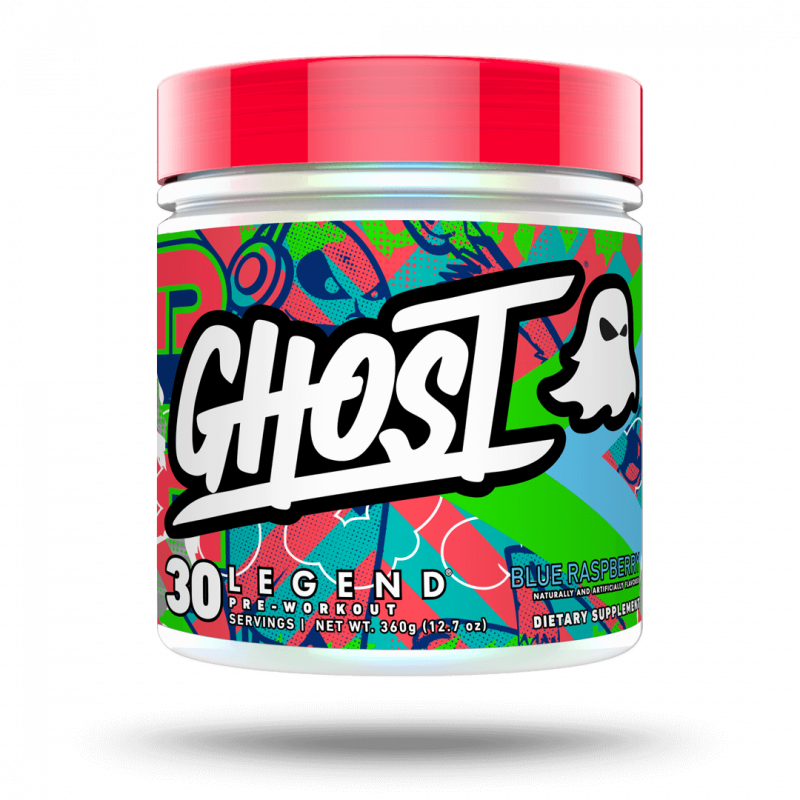
Serving size: 1 rounded scoop (33-36 grams)
Calories: 120 to 140
Sugar: 1 to 3 grams
Protein: 25 grams
Sweeteners: sucralose
Cost: $40 for 2 pounds
Ghost makes some unusual flavors like fruity cereal milk and blueberry toaster pastry. But it's really just a whey protein blend with enzymes to help improve absorption that's not much different from other whey proteins on this list.
Ladder plant protein

Serving size: 1 packet (35 grams)
Calories: 130
Sugar: 2 grams
Protein: 21 grams
Sweeteners: stevia and monk fruit
Cost: $40 for 15 servings or $60 for 30 servings
This company stands out because of the names behind it - it was founded by LeBron James and his trainer, and backed by Cindy Crawford and Arnold Schwarzenegger.
The powder contains both whey and plant protein (a blend derived from peas and pumpkin seeds), which are free from artificial sweeteners and sold in pre-measured, easy-to-use packets.
They contain electrolytes, enzymes, and probiotics in addition to protein, although they are more expensive, per serving, than many of the other products on this list.
Vega Sport Premium Protein

Serving size: 1 scoop (43 grams)
Calories: 170
Sugar: 2 grams
Protein: 30 grams
Sweeteners: stevia
Cost: $50 for 1.75 pounds
This vegan protein is a blend of pea, peanut, sunflower, pumpkin, and alfalfa proteins with added probiotics and branch-chain aminos. It also includes anti-inflammatory tart cherry and black pepper extracts, which research suggests can help reduce muscle pain and boost recovery.
For people avoiding dairy for any reason, plant-based protein is a good substitute and a blend of several kinds can make sure you're getting all the right amino acids.
This brand was also listed by the Clean Label Project as having a higher level of contaminants.
Garden of Life raw organic protein
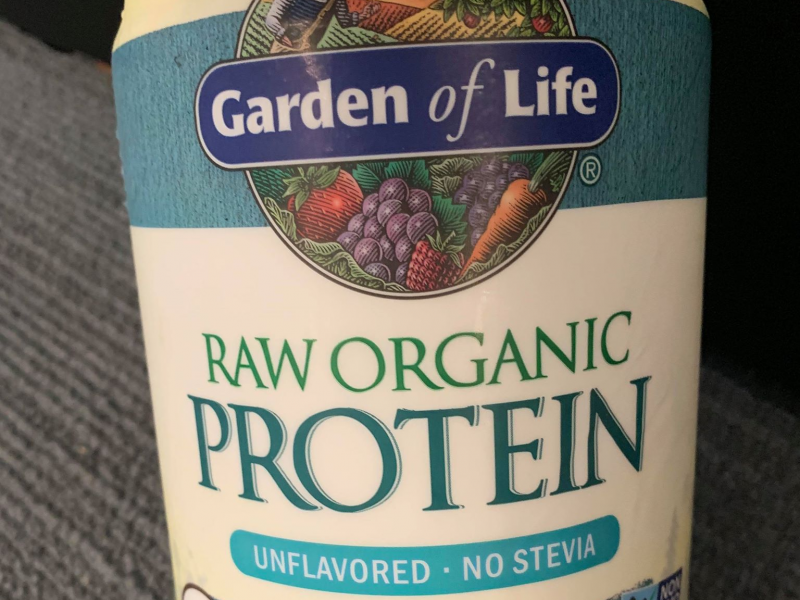
Serving size: 1 scoop (28 grams)
Calories: 110
Sugar: 0
Protein: 22 grams
Sweeteners: none
Cost: $38 to $46 for a little over a pound
A long list of plant proteins make up this blend, including peas, brown rice, chia, pumpkin, and sunflower. It has added probiotics, branch-chain amino acids, vitamins (from whole plants), and enzymes.
Although it's expensive, the higher price tag includes whole-food ingredients like organic seeds and sprouts.
Nutiva hemp seed protein

Serving size: 3 tablespoons (30 grams)
Calories: 90
Sugar: 1 gram
Protein: 15 grams
Sweeteners: none
Cost: $17 per pound
This product is pure hemp protein, cold-processed from raw hemp seed, with no sweeteners or additives. It's vegan and a good source of healthy fats, iron, magnesium, and potassium.
Although hemp comes from the same family as marijuana, it doesn't contain THC, the psychoactive compound that gets you high. It does, however, naturally contain some amino acids and also has a high amount of fiber with 8 grams or 30 percent of your recommended total.
Read more:
The best natural protein powders you can buy

